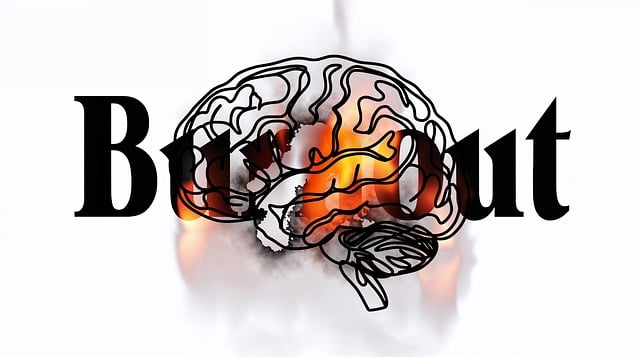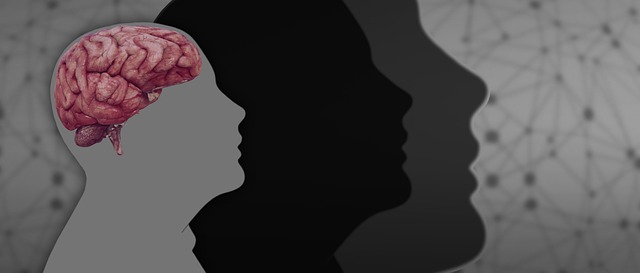Mental Health Crisis hotlines provide 24/7 support, addressing various issues including spiritual-religious struggles and self-harm thoughts. Trained professionals offer immediate assistance, empathy, and confidentiality to children and adults. These services reduce mental illness stigma, empowering individuals with stress management strategies. Therapy tailored for children's spiritual concerns helps manage faith-related anxiety and promotes mental wellness. Identifying and addressing these issues early is crucial for emotional well-being during formative years. Cultural sensitivity and faith-based practices integrated into crisis support ensure comprehensive care for diverse backgrounds, combining mood management techniques with spiritual considerations. Hotline operators receive specialized training in diverse conditions, crisis interventions, and cultural awareness through workshops and peer groups to effectively assist individuals in real-time.
In today’s fast-paced world, mental health crisis hotline support services serve as a lifeline for individuals grappling with distressing emotions. This article delves into the crucial role these hotlines play in providing immediate assistance and long-term solutions. We explore key aspects, including understanding crisis hotlines, the unique challenges of children’s spiritual and religious concerns, cultural sensitivity in crisis support, and essential training for operators. By integrating faith-based practices, these services offer comprehensive care tailored to address spiritual-religious issues, ensuring effective interventions for all individuals in need.
- Understanding Mental Health Crisis Hotlines: A Lifeline for Distressed Individuals
- The Role of Therapy in Addressing Children's Spiritual and Religious Concerns
- Identifying and Assessing Spiritual-Religious Issues in Youth
- Integrating Cultural Sensitivity and Faith-Based Practices in Crisis Support
- Training and Resources for Hotline Operators: Ensuring Effective Intervention
Understanding Mental Health Crisis Hotlines: A Lifeline for Distressed Individuals

Mental Health Crisis hotlines serve as a vital lifeline for individuals grappling with distressing situations. These 24/7 services provide immediate support and guidance, offering a safe space to express feelings and concerns without judgment. Trained professionals on these lines are equipped to handle a wide range of issues, from anxiety and depression to more complex problems like spiritual-religious struggles or even thoughts of self-harm.
Understanding the importance of swift intervention, these hotlines prioritize building empathy and offering non-judgmental therapy for children as well as adults. They also play a crucial role in mental illness stigma reduction efforts by promoting understanding and compassion. By providing a confidential and accessible resource, crisis hotline support services empower individuals to navigate challenging times, fostering effective stress management strategies for long-term well-being.
The Role of Therapy in Addressing Children's Spiritual and Religious Concerns

Therapy plays a pivotal role in addressing children’s spiritual and religious concerns, offering a safe space for them to explore their beliefs and emotions freely. Many children grapple with anxiety relief related to their faith, especially during times of transition or change. Therapists skilled in this area can help young individuals navigate complex feelings about their religion, fostering mental wellness through open dialogue and support.
By integrating spiritual-religious discussions into therapy sessions, professionals contribute to the design of effective mental health education programs tailored for children. This approach not only equips them with coping mechanisms but also encourages resilience. Moreover, a well-structured mental wellness podcast series production centered on these themes can further enhance understanding and access to support, making it easier for both children and their families to seek help when needed.
Identifying and Assessing Spiritual-Religious Issues in Youth

Identifying spiritual-religious issues among youth is a nuanced aspect of mental health support. Many young individuals seek therapy for children specifically addressing these concerns, as they can significantly impact overall well-being. Spiritual crisis in adolescents might manifest as confusion about identity, purpose, or doubt regarding their religious beliefs, often leading to emotional distress and burnout prevention challenges.
Assessing these issues requires a sensitive approach where therapists facilitate open dialogues, allowing youth to express their struggles without judgment. By understanding the individual’s spiritual or religious framework, therapists can guide them through emotional healing processes, aiding in regulating emotions and fostering resilience. This support is vital for navigating life’s complexities, especially when one’s faith is undergoing transformation during formative years.
Integrating Cultural Sensitivity and Faith-Based Practices in Crisis Support

Incorporating cultural sensitivity and faith-based practices into crisis support services is a vital strategy to ensure comprehensive care for individuals from diverse backgrounds. Many people hold strong spiritual or religious beliefs that significantly influence their mental health and coping mechanisms. By integrating these aspects, crisis hotlines can offer tailored therapy for children facing emotional challenges, addressing both their immediate needs and underlying spiritual-religious issues. This approach fosters trust and encourages open communication, making it easier for individuals to seek help.
For instance, community outreach programs that incorporate cultural sensitivity can effectively promote mental wellness by providing safe spaces where folks feel understood. These initiatives teach coping strategies while respecting individual faith journeys. Integrating mood management techniques with spiritual-religious considerations allows for a holistic approach, recognizing the intricate link between one’s beliefs and their emotional well-being. Such an inclusive model ensures that support services resonate with a broader audience, enhancing access to care for those who might otherwise face barriers.
Training and Resources for Hotline Operators: Ensuring Effective Intervention

Hotline operators play a critical role in providing immediate support and guidance during mental health crises. Effective intervention requires specialized training that equips them to handle diverse situations sensitively and competently. This includes understanding various mental health conditions, crisis intervention techniques, active listening skills, and cultural competency to cater to a wide range of callers.
Beyond basic training, ongoing professional development is essential. Resources such as workshops, webinars, and peer support groups can enhance operators’ knowledge on topics like therapy for children, managing stress and mood, and addressing spiritual-religious issues. Moreover, implementing robust risk management planning for mental health professionals ensures a safe environment for both operators and callers, fostering effective crisis resolution without compromising anyone’s well-being.
Mental health crisis hotline support services play a vital role in providing immediate assistance and navigating individuals through their distress. By integrating cultural sensitivity, faith-based practices, and specialized training for operators, these hotlines ensure effective interventions tailored to diverse needs. Addressing children’s spiritual and religious concerns is a significant aspect of holistic therapy, making these hotlines invaluable resources for both youth and families seeking guidance during mental health crises.














